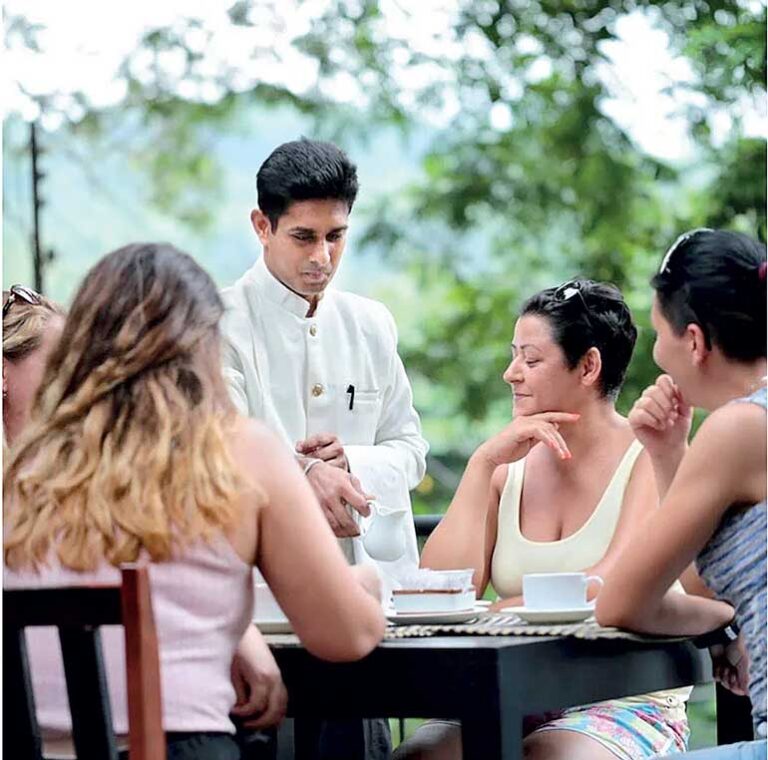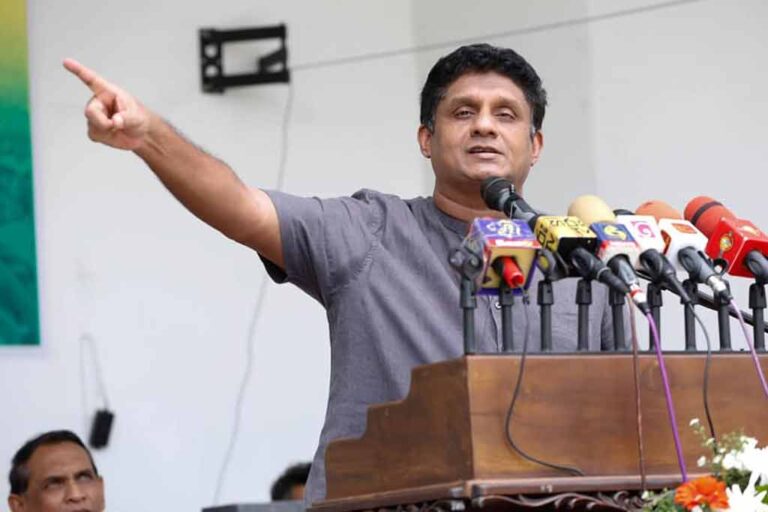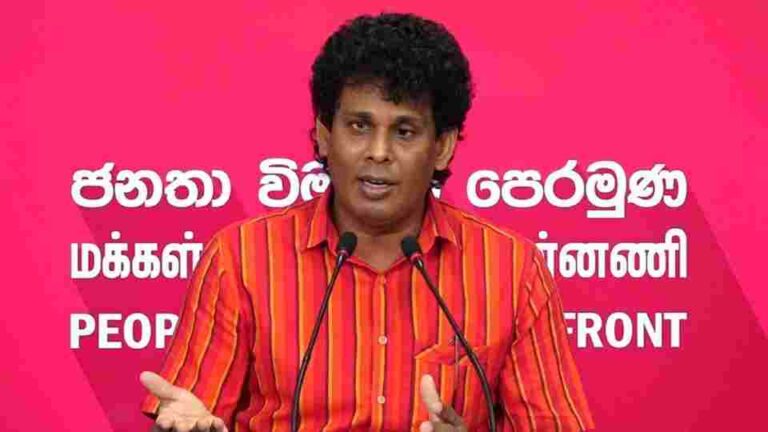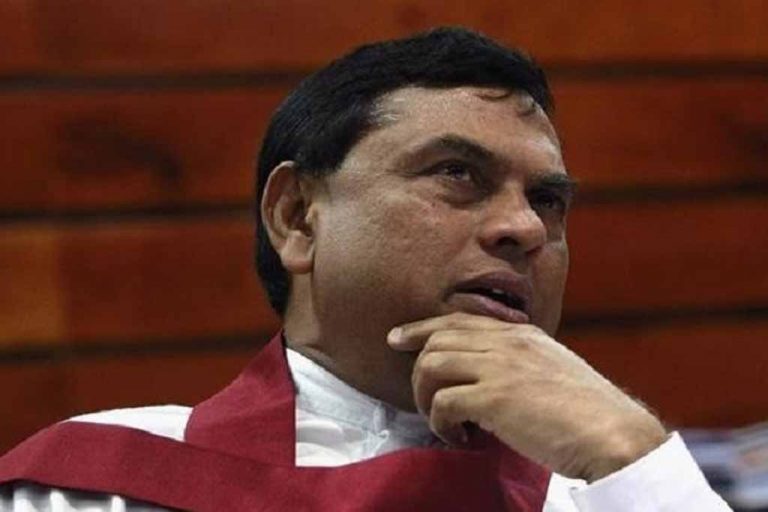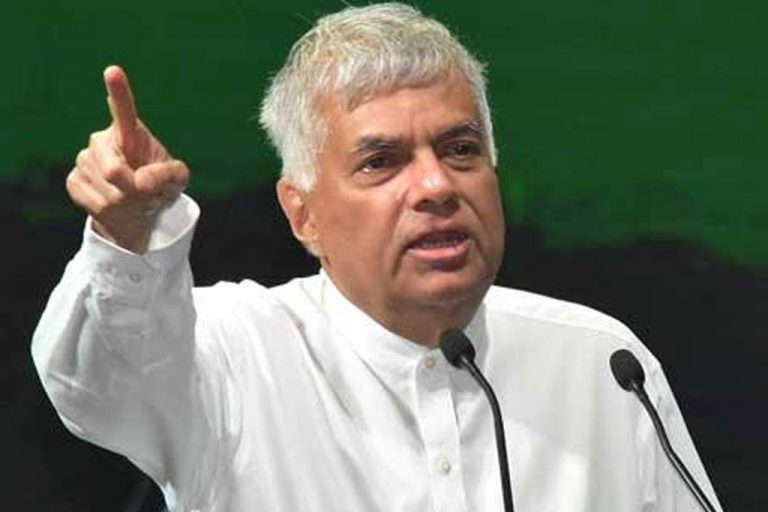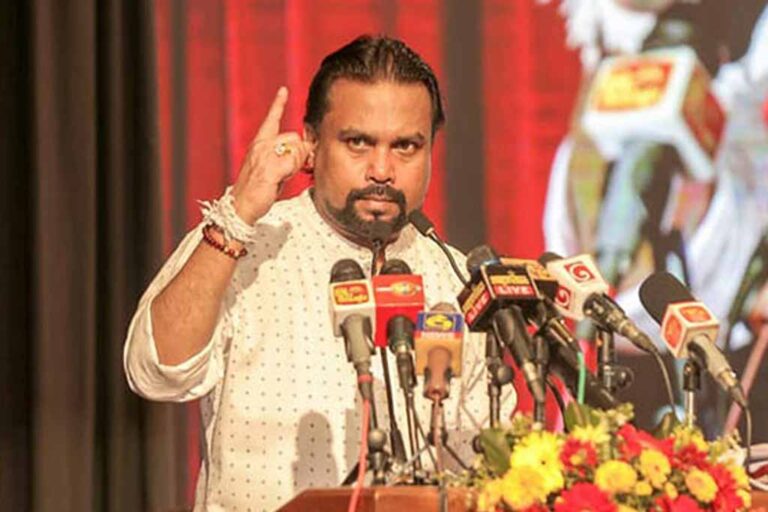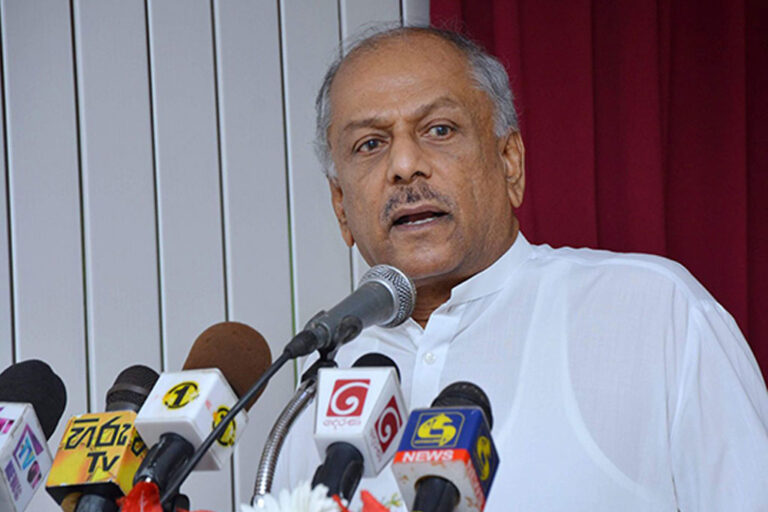The proposed import ban on over 300 items By the Finance Ministry on the recommendation of Central Bank Governor Nandalal Weerasinghe put a significant number of businesses that are dependent on imports in a difficult situation.
These business men and and women noted that top government s who were behind this import ban without conducting proper survey on its impact among SMEs and small businesses affecting millions of dependants or consulting affected parties should bear the responsibility for the present plight of the people.
The most crucial impact will be on Micro, Small and Medium Enterprises dependent on imported inputs for their production process
The livelihood of street vendors, businesses dependent on selling raw materials and the construction and apparel industries will face severe hardship as a result of these import bans. Also affected will be Sri Lanka’s tech industry as a result of the ban on the importation of electronic equipment.
The Hotel Suppliers Association (HSA) President Azad Mansoor said that 95% of its members are of SME category providing 200,000 direct employment and a further 500,000 indirectly and the latest import ban spells doom for the industry.
It was pointed out that items such as food and beverage, toilet rolls, paper napkins, facial tissues, hand towels, operational goods such as glassware, cutlery, kitchen and bar utensils and certain types of table top equipment such as blenders and toasters, kitchen equipment such as high pressure stoves, cookers, ovens, refrigerators, chillers, etc., laundry equipment such as washers, dryers and flatbed irons, chemicals such as greases, cleaning tablets and liquids, linen such as towels, duvets covers, and fabric for manufacturing bed sheets, etc., are among hundreds of items brought under the import ban.
Mansoor said the ban will stifle the smooth functioning of the hotel industry and maintain service stands.
“HSA members had placed orders and shipments are in transit and unlikely to reach by the stipulated 14 September deadline for clearance whilst some are yet to be shipped out. Most of the hotels had begun placing their orders and most of these goods are not available in the market,” Mansoor added.
HSA recommends a special window for clearing of products already ordered for the hospitality industry.
The latest ban comes at a time when the industry is gearing to welcome more tourists following relaxation of travel advisories by UK, France, Switzerland and Norway and upcoming winter season.
“A successful hassle-free season will help quicker revival of the tourism industry which has been battered by multiple crises starting from 2019 Easter Sunday attacks, COVID pandemic and political and economic crisis,” HAS President Mansoor emphasised.
The Government last week slapped a temporary ban on the import of products from over 360 categories in a bid to save foreign exchange and support local manufacturers.
The move was announced via special regulations under the Imports and Exports Control Act by President Ranil Wickremesinghe in his capacity as the Minister of Finance, Economic Stabilisation and National Policies.
Hospitality Industry fears complete shut down due to import ban
Plot against CBSL Chief a move to reinstate a former Governor who fled SL?
Leader of the Opposition Sajith Premadasa attending the Samagi Jana Balawegaya (SJB) Akmeemana Electorate Authority Board rally in the Galle district yesterday (03) questioned whether a plot against the current Governor of the Central Bank of Sri Lanka (CBSL) is in the works to reinstate a former Governor who fled the nation.
The event was organised by Akmeemana Chief SJB Organiser former MP Vijayapala Hettiarachchi and was attended by a large number of people. The SJB Akmeemana Electorate Office was also opened simultaneously.
Speaking at the event, the Opposition Leader disclosed that the government together with the MPs of the Sri Lanka Podujana Peramuna (SLPP) are plotting against the CBSL Chief, in a move to appoint one of their cronies to the position.
Despite some people’s questioning on the current CBSL Chief’s dual citizenship, the entire country remembers who appointed a dual citizen as a CBSL Governor many years ago, Premadasa reminded, adding that the same individual who had claimed that he had a wedding to attend to had fled the nation and now is nowhere to be found.
The Opposition Leader raised suspicion whether the next step of the plot against the Governor would be the recalling of the former CBSL Governor who had fled the country and having him reinstated, and reminded that there is also a predecessor to the current CBSL Chief living in Sri Lanka who had bragged that there is ‘no connection‘ between money printing and inflation and acted arbitrarily.
Some parties showing their political opportunism have joined forces with a rogue government that paid compensation for a manure ship, was involved in the sugar scam, the coconut oil scam and the coal scam, the Opposition Leader added.
These opportunists not only sold themselves out but also sold the name of Ranjan Ramanayake, Premadasa went on, adding that they have not granted the former MP full freedom.
MIAP
EU welcomes IMF – SL staff level agreement on bail out loan
The delegation of the European Union to Sri Lanka says it welcomes the staff-level agreement between the International Monetary Fund (IMF) and Sri Lanka.
The Finance Ministry said it is working on implementing the prior actions agreed upon under the Staff-Level Agreement (SLA) and on securing the financing assurances needed from Sri Lanka’s official bilateral creditors to obtain the adoption of the $ 2.9 billion worth four-year program by the IMF Executive Board.
“The authorities have been working with their international financial and legal advisors on their debt restructuring strategy,” the Finance Ministry said in a statement.
“The authorities further intend to make a presentation to creditors in the next few weeks to update them on the most recent macroeconomic developments in the country, the main areas of the reform package agreed with the IMF staff and the next steps of the debt restructuring process,” it added.
Taking to its official Twitter handle, the EU delegation said it looks forward to continuing cooperation on public finance management and green economy, including export industries.
Earlier this week, IMF staff and the Sri Lankan authorities reached a staff-level agreement to support Sri Lanka’s economic policies with a 48-month arrangement under the Extended Fund Facility (EFF) of about USD 2.9 billion.
The IMF said the objectives of Sri Lanka’s new Fund-supported program are to restore macroeconomic stability and debt sustainability while safeguarding financial stability, protecting the vulnerable, and stepping up structural reforms to address corruption vulnerabilities and unlock Sri Lanka’s growth potential.
Debt relief from Sri Lanka’s creditors and additional financing from multilateral partners will be required to help ensure debt sustainability and close financing gaps, the global lending agency said further in a statement.
An International Monetary Fund (IMF) mission led by Mr. Peter Breuer and Mr. Masahiro Nozaki visited Colombo from August 24 to September 01, 2022 to continue discussions on IMFs support for Sri Lanka and the authorities’ comprehensive economic reform program.
Meanwhile, Japan called on all creditor nations to discuss Sri Lanka’s debt restructuring. “It’s important for all creditor nations, including China and India, to gather to discuss Sri Lanka’s debt restructuring,” Japanese Finance Minister Shunichi Suzuki said.
In response to Japan’s request, China, a major creditor nation of Sri Lanka, said it stands ready to work with relevant countries and international financial institutions to continue to play a positive role in supporting Sri Lanka’s response to current difficulties and efforts to ease debt burden and realize sustainable development.
JVP demands IMF conditions be released to public
The conditions stipulated in the government’s agreement with the International Monetary Fund (IMF) must be released to the public, demanded former Janatha Vimukthi Peramuna (JVP) MP Wasantha Samarasinghe.
Speaking to media yesterday (03), the former JVP MP reminded that the President as a lone MP in Parliament had questioned the former Governor of the Central Bank of Sri Lanka (CBSL) about the IMF conditions during the government’s preliminary discussions with the global fiscal agency, adding that Ranil Wickremesinghe, as the head of state and the minister of finance on the other hand, is not keen on revealing them today.
Samarasinghe stressed that the IMF conditions should be tabled in Parliament and that the world must know what the Sri Lankan government has agreed to.
MIAP
Coral Energy helps CPC to ease fuel shortage importing Russian oil via third party
Sri Lanka has to depend on third party procurement of Russian oil as it cannot import oil directly from Russia under sanctions imposed on that country by the US Energy Minister Kanchana Wijesekera said.
He noted that the ministry has tried its level best to import oil directly from Russia on government to government basis but all attempts were unsuccessful compelling the country to seek other alternatives to tackle fuel shortage.
Attempts to persuade Russia to use a previously agreed upon 300 million US dollar credit line had also failed as it was prohibited from giving credit to a defaulted nation.
This declaration of preemptive default of country’s external debt was madeby Central Bank Governor Nandla Nandalal Weerasinghe on April 12 two months before the scheduled repayment of US$1 billion and the responsibility of this decision was accepted by then Finance Minister Ali Sabry.
Bu the million dollar question at present was that who is going to accept all the after effects of this preemptive default including the difficulty in importing fuel and other essential commodities harming the innocent people of this country, several social service activists asked.
The Russian embassy in Colombo had suggested names of several Russian companies for the state-run Ceylon Petroleum Corporation to deal with but this was not fruitful.
Attempts to persuade Russia to use a previously agreed upon 300 million US dollar credit line had also failed as the country was prohibited from giving credit to a defaulted nation.
However the Russian firms which were technically private, did not take part in tenders or submit unsolicited proposals for single cargoes, but went for long term contracts.
Minister Wijesekera said that the Ceylon Petroleum Corporation(CPC) was compelled to call competitive tenders and only go for unsolicited proposals if the tender failed.
However Sri Lanka has just managed to ease the fuel shortage by importing Russian oil via third party procurement contract, Power and Energy Ministry sources said.
According to Power and Energy top official that neighbouring India is the preferred third party with regard to importing Russian oil as the government has already imported refined oil from India using a credit line.
With a bilateral agreement between the two nations, such a business is very much possible for the selected international company to supply oil for Ceylon Petroleum Corporation (CPC) even under the current dollar crisis, he said, adding that it could be a possible way to import of Russian oil at a reasonable rate.
In the past, CPC has borrowed dollars or used suppliers ‘credit to import oil without making immediate payments
Now suppliers are no longer giving credit to the CPC. As a result, the CPC has to find dollars upfront to pay suppliers when there are forex shortages.
By end April this year US$ 750 Million worth payments were due to its long standing Petroleum suppliers. That money is still remaining unpaid with no signs of any settlement, a top official of the Power and Energy Ministry disclosed.
Under the present set up of the country risk of debt default, no prime bank in the world is confirming the LC’s of Sri Lankan banks anymore, he said adding that these suppliers have decided not to supply fuel to CPC and also started preventing ship owners to carry cargoes to CPC unless/until they were paid.
This has resulted in CPC struggling to buy any petroleum products in the market. Sapugaskanda oil refinery was closed for months due to lack of crude oil and people started waiting for days in queues near fuel filling stations without diesel, petrol and kerosene.
Under this circumstance, CPC has called for expressions of interest from foreign firms in petroleum producing countries to import for the island, as the country stumbles from foreign exchange shortages.
The selected firms should agree to import oil using their own funds without buying dollars in the domestic market for an unspecified period of time.
It has offered a guaranteed fuel quota to any company that can pay in dollars. Potential purchasers must pay as much as a month in advance to open a consumer account at state-run CPC.
All procurement was done upon checking with suppliers. Never a case a supplier quoting higher rate was selected when a lower one was available, top official said.
Over two hundred award letters were given to representatives of foreign firms who quoted low with fancy prices but none of them have supplied fuel up to now, he added.
Under the circumstances the only question before the CPC was whether to buy from the very few suppliers who obviously charge high to mitigate their risks or keep the nation suffering in fuel crisis without any procurement at all.
Bids have been invited for the award of a long term contract for importing crude oil for a period of 7 months from 01.06.2022 to 31.12.2022.
The Cabinet appointed standing procurement Committee has recommended to award the relevant crude oil procurement contract for seven months to Coral Energy a company based in United Arab Emirates and two other companies Vitol Singapore and IOC to bring down crude oil and refined oil shipments till the end of this year, he revealed. .
Cabinet of Ministers approved the proposal presented by the Minister of Power to award this contract in accordance with this recommendation.
The UAE based company Coral Energy has taken great risk of accepting Sri Lankan Rupees to unload its first crude oil shipment with Central Bank promising to convert it to dollars within 30 days.
However Sri Lankan refinery experts first recommended Iranian light for Sapugaskanda refinery then they said only Murban Crude is good.
But now they say Siberian Light is good and Urals is not compatible even after the unloading of the shipment pushing the country in to another wave of petrol, diesel and Kerosene shortage, he claimed.
SLPP launches new ‘Leadership Academy’
The Sri Lanka Podujana Peramuna (SLPP) yesterday (03) launched the ‘SLPP Leadership Academy’ in Colombo under the patronage of former Prime Minister Mahinda Rajapaksa.
The new leadership academy for ‘political excellence’ was initiated based on a concept by Party National Organiser Basil Rajapaksa, who also serves as its Chairperson.
The body is operated by a group of intellectuals led by Prof. Ranjith Bandara.
The new leadership academy is operated under seven classes, including democracy, politics, entrepreneurship and etc. and will be considered in producing nominations for the upcoming elections.
A party spokesman claimed that the new leadership academy of the SLPP is a long-term programme for a change in the country’s politics and there are no short-term expectations.
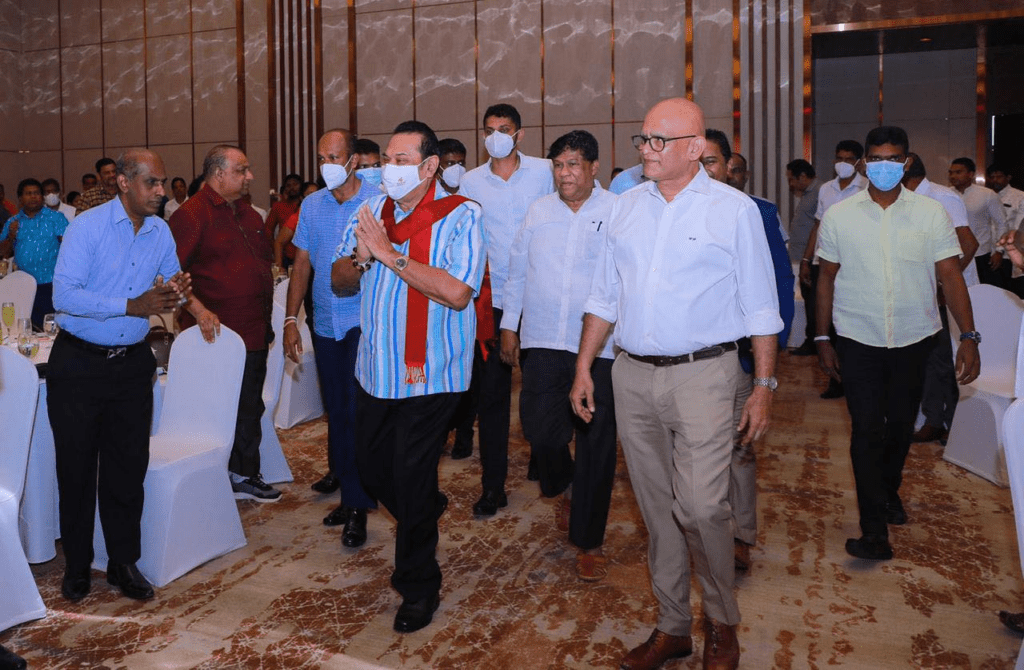
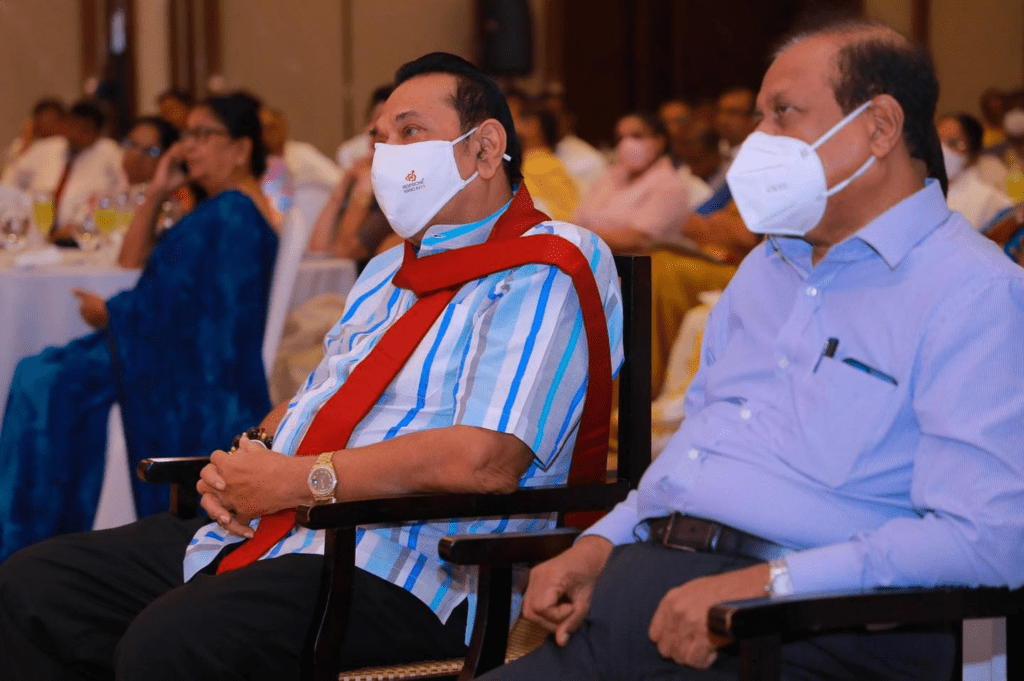
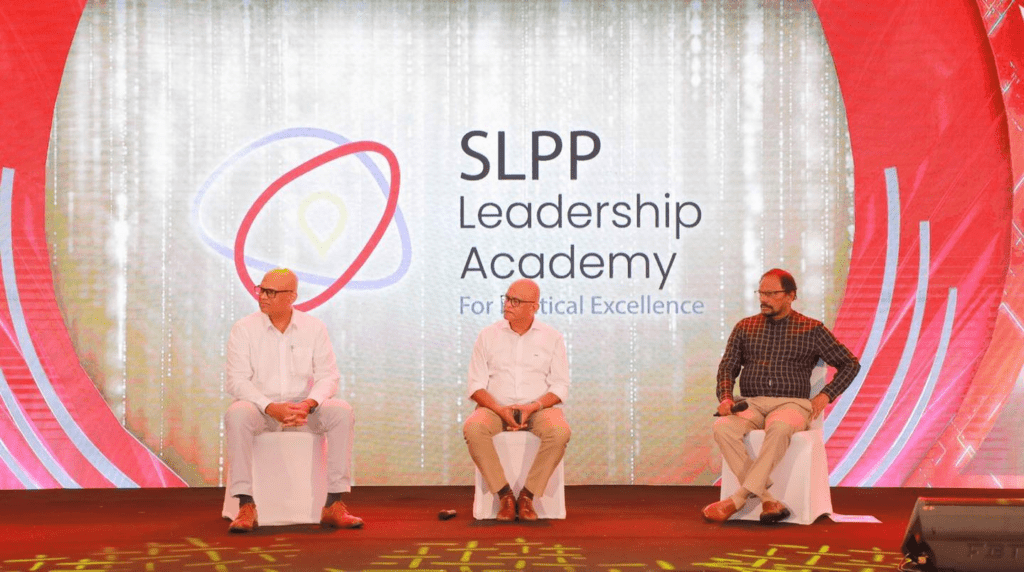
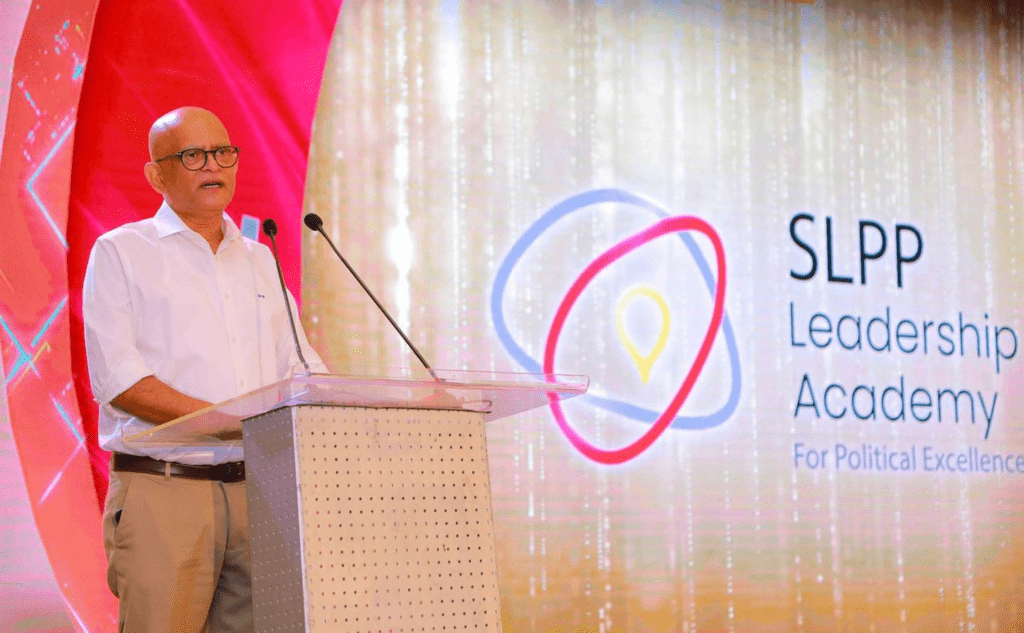
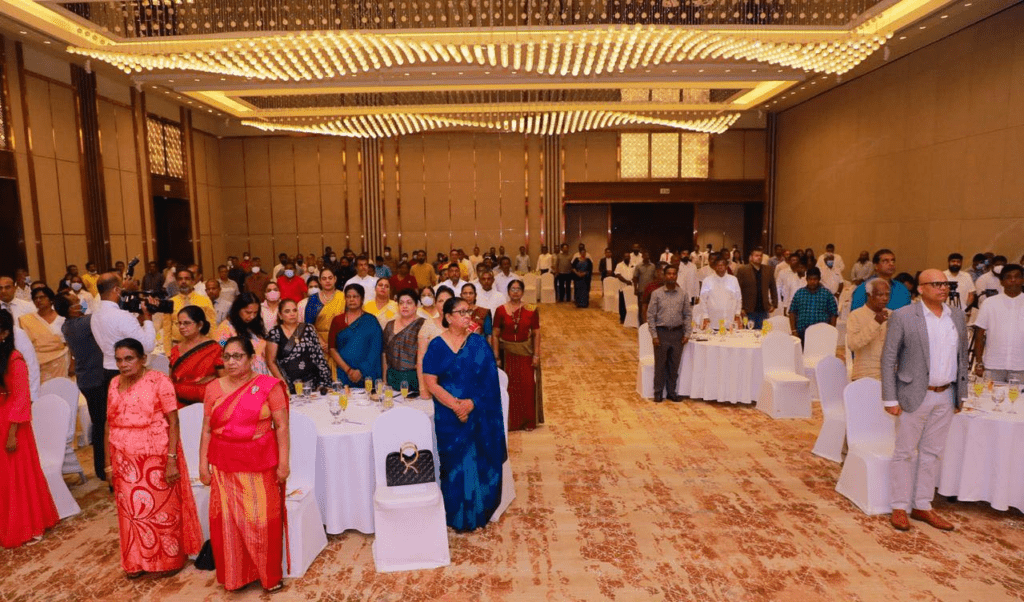
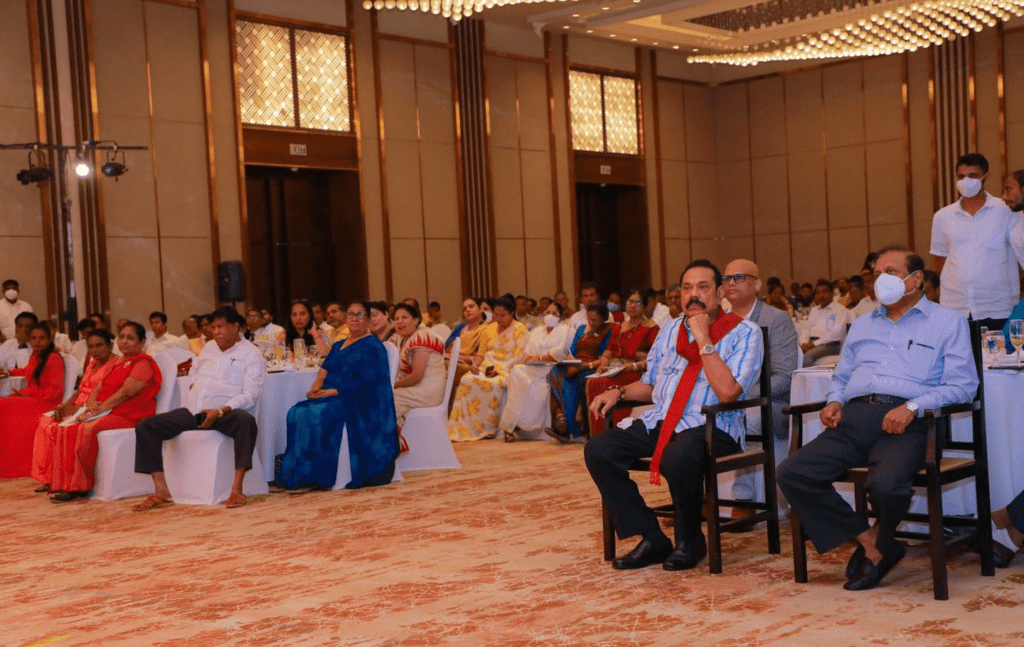
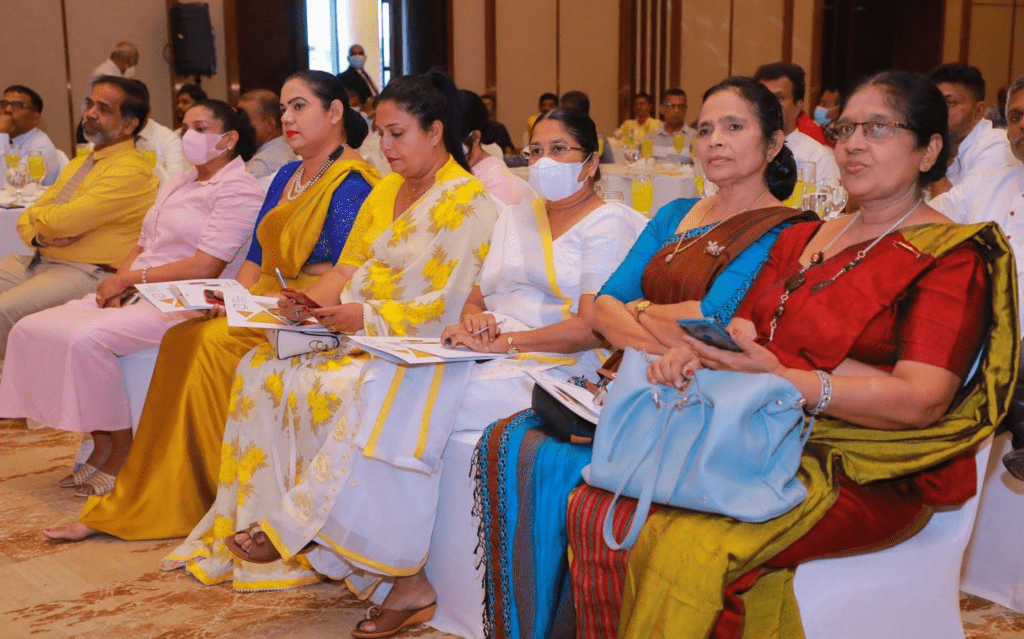
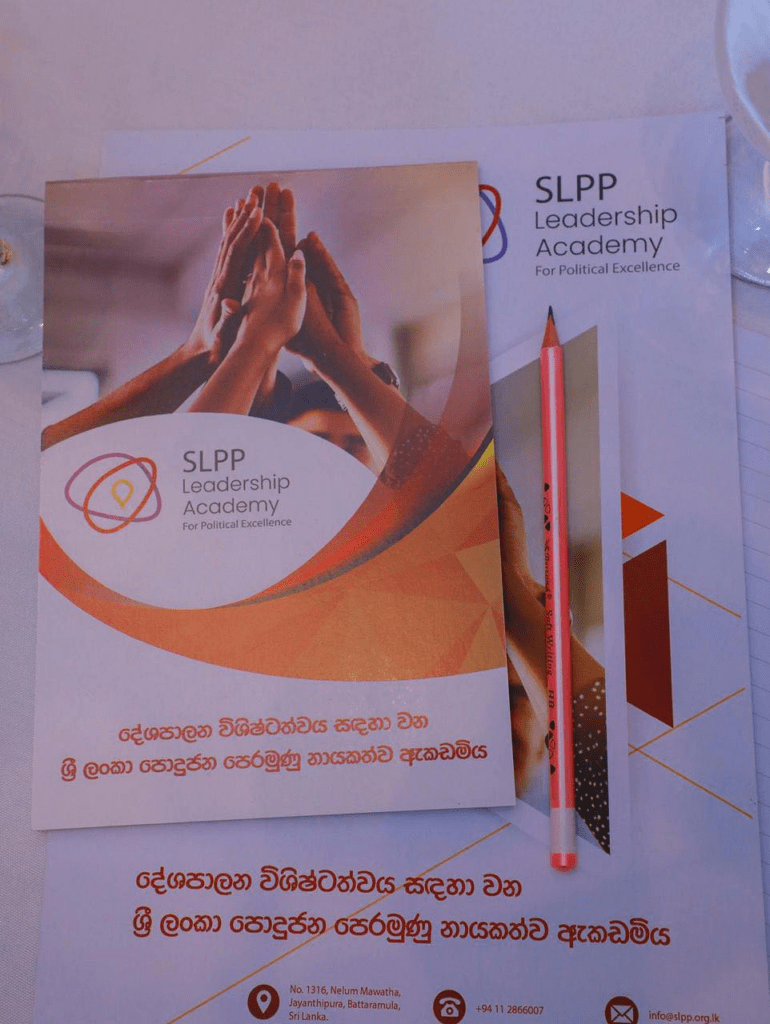
MIAP
The attempted seizure of Parliament could’ve been the end of SL’s democracy – President responds to ‘Aragalaya’ (VIDEO)
President Ranil Wickremesinghe attending the 156th Anniversary of the Sri Lanka Police yesterday (03) said Sri Lanka could have met the end of its democracy had the protesters of the ‘Aragalaya’ been allowed to seize Parliament.
“When the law is violated, there are two bodies that act on it. The Police have the job to first investigate it, find out who is responsible for it and keep them in remand custody if they want to prosecute them. An independent court will decide whether those people have broken the law or not. So, a country cannot run without these two bodies,” the President said.
Wickremesinghe added: “In March, the youth of this country initiated a movement called the ‘Aragalaya’ against a government. They carried out the protests peacefully and without violence. Unfortunately, this group was removed and violent people took over this movement in June. So, it could have been collapsed, melted in July. But instead, instead of the young men and women who started this, they brought groups from every corner of Sri Lanka to undermine and destroy the government. Then, they attempted to besiege Parliament too. Had the Parliament been seized, this country’s democracy in particular could have ended. If that was the case, it will be a violation of the rule of law; a deprivation of the people’s universal suffrage.”
The President further noted that had the Parliament been seized, who was going to rule the country will never be known, adding, “At that time, Parliament was protected because the Army and the Police acted on it. Some say that those who came in were not treated properly, that they were oppressed. What else should have been done? Treat them with tea from the Parliament Canteen? There is no point of whitewashing it now. These will be revealed through the Police investigations. I think Parliament too has to find out about this later.”
MIAP
Weerawansa’s presidential journey commences with new alliance
The new political alliance formed by Leader of the Jathika Nidahas Peramuna (National Freedom Front: NFF) Wimal Weerawansa is set to be launched this (04) afternoon at the National Youth Service Council premises, Maharagama, in the ex government minister’s latest move in his strategic journey of sitting on the throne which has been operational since way before 2019.
Nine political parties including Jathika Nidahas Peramuna led by Weerawansa, Pivithuru Hela Urumaya led by former Minister Udaya Gammanpila, Democratic Left Front led by former Minister Vasudeva Nanayakkara, Sri Lanka Communist Party, Lanka Samasamaja Party and Yuthukama National Movement have joined the new alliance.
The announcement of the name of this new alliance, its leadership board and the signing of its policy statement are set to be done today.
MIAP
PM proposes Women and Child Affairs Ministry be given to a woman
The Ministry of Women and Child Affairs should be given to a woman in the formation of the new Cabinet this time, said Prime Minister Dinesh Gunawardena, speaking to a meeting held with the Ruling Party MPs, sources said.
For two and a half years under the Gotabaya Rajapaksa regime there was no separate cabinet ministry for women and child affairs and the subject was entrusted to men ministers.
Therefore, the Prime Minister has pointed out that entrusting this ministry to men who have no practical understanding of the needs of women and children would be a meaningless action and that having women’s representation in the Cabinet would be important.
MIAP
Mobile, TV and Internet charges to soar from Monday!
The Telecommunications Regulatory Commission of Sri Lanka (TRCSL) will approve an increase in tariff for mobile, fixed-line and internet broadband services, effective from Monday (05).
Accordingly, charges for mobile, fixed-line, broadband and other prepaid and postpaid services will soar by 20 per cent.
Charges for all pay televisions services, including satellite and cable will soar by 25 per cent.
Meanwhile, the value added tax (VAT) paid for all pay television services will increase from 12 per cent to 15 per cent.
MIAP

